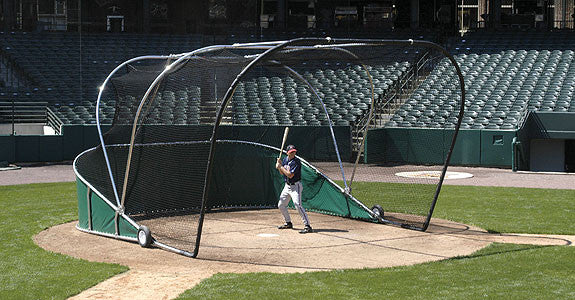Umpiring and Coaching
I would like to write an article about the relationship between a coach and an umpire. Having been a coach for 34 years and umpire for 21 years I feel like I have some expertise in this area.
The first and foremost thing is to realize that both of you are out there to do a job. This truly should not be an adversarial relationship though sometimes it reduces itself to that. I'm always kept in mind when I coached younger kids that the umpires themselves were just starting out and probably do not have the experience nor the expertise to handle every situation that comes up in a ballgame. They certainly don't have the maturity to handle a coach that is on them from the first pitch and about every call, nothing really good as going to come of this kind of interaction. The umpires going to become very defensive about his calls and in fact the less experience they have with coaches and situations they are very likely to eject a coach or a player over something that was really just part of the ballgame. The other possibility is the umpire will take any amount of the static from both from the coaches, players, and fans and therefore loses control of the game besides ruining it for everybody.
It is always been my opinion and experience that coaches and umpires realize why they're both out there on the field. It's not the umpire's job to make everybody happy every call this the least bit close is going to disappoint 50% of the people. H should look at the play, make a decision, then be firm in announcing it and go on with the game. You've never seen a umpire change a ball- strike or out -safe call that is just the way it is and should be. Coaches have every right to an explanation of a rule and the application of the rule; in fact that was always my rule of thumb. When I would talk to umpire as a coach the rule was I wanted the rule and application of that rule explained and wanted the application changed. The application of rules is what can be changed not the call itself. As umpire I always appreciated and gave the utmost consideration to a coach that knew what he was talking about and only complained or questioned the rule. I’ll guarantee you that you'll get more done going out there and say I need you to explain to me or why did you call it that way. If you go out there and are argumentative that's what you get an argument. I will say right now that the umpire that is worth his or her being out there will win each and every argument, that is the way it has to be that's why they're working the game.
When you are arguing with an umpire there are words that you should never use and they are not always the obvious ones such as cussing, depending on the level of the game a coach can be more vocal. But no umpire in the world likes to hear the word "you", or “cheater" in front of any statement that you may make. When I was working college or high school we discussed things very adamantly at times but the minute coach put "you" in front of his words he stood a good chance of getting tossed.
Remember the umpires are there in the game just as you and your players. To try an manipulate him is the same is trying to manipulate your players. I will agree if an umpire makes the wrong call by applying the rule incorrectly then you have every right to try to get it changed but you are creating a situation that you really don't want when you just complained about balls - strikes, safe -out.
A situation in a ballgame this past week about what constitutes a fair or foul ball. There's one overriding rule in baseball the ball is what is fair or foul not player. The original question was the ball hit home plate and the umpire called it fair, correctly, but the coach thought it should be foul because it hit home plate NO, what makes it fair foul is one of the following criteria:
1. If the ball hits the ground and then passes over or inside first or third then it doesn't matter where it lands past the base it is a fair ball.
2. If the ball is in front of first or third base then it's where the ball is touched NOT, the player position of the ball is what determines fair or foul not player.
3. What are the common ones is that the batted ball is hit into foul territory then comes back into their territory, too many times players or coaches or fans think that because the ball landed in foul territory then got into fair territory that it still foul ball. Again it's where it's touched in front of first or third base. We never think about the ball that hit fair and then rolls foul everyone call that a foul ball, but the truth is the exact reverse of it is also correct it can land in foul territory and roll into fair territory (as long as it is in front of first or third) and it will still be a fair ball. Just something they came up this weekend that's always been true.
Umpire question if you please: we were playing a high school game on Friday and we had a situation that seems to be contradicting in how the umpire awarded the bases. Here's the first situation the pitcher had a wild pitch go off of the catchers shin guards and go into the dugout. The umpire only awarded one base the runner at first. Then as circumstances would happen there was a runner at first a couple of innings later and the picture try to pick him off and threw it out of play over the fence. This time the umpire awarded the runner all the way to third. I don't see the difference really.
Answer to Coach
I believe the umpire was right because of the rule that governs the pitcher and overthrows. When a picture is in contact with the rubber ball that he throws as a pitcher no matter where he throws is only awarded one base on overthrow out of play. What I think you left out of the description of the play to first base is, that the pitcher stepped off the rubber and threw it out and play. When he stepped off the rubber he became the infielder the rule for infielders outfielders is two bases at the time throw are awarded. Therefore he was infielder, the runner possessed first base, so he was awarded two bases on the overthrow out of play and ended up at third base. So I believe that's what happened in the umpire was correct.
Hey Ump, I have another question. If the batter hits the ball down the first baseline & the 1st baseman fields the ball in front of the bag with one foot in fair & the foot in foul territory,is the ball fair or foul?
Answer:
I really can't answer your question because the player has nothing to do with whether the ball is fair or foul. In the baseball what determines if a ball is fair or foul is where it's located when touched by a player. If the ball is on or over line when touched then the ball is fair regardless of where the player is. It is quite conceivable to have a player in fair territory when he touches the ball, but the ball is located outside of the line, therefore it is foul. To expand on this little bit a ball that is it and touches the ground in front of first or third base then passes over or inside of the base is fair regardless of where it touches after it passes the base. If the ball is in flight when it goes past first or third in what determines it to be fair or foul is where it lands or is first touched by a player. Therefore the reason I couldn't answer your question directly is you didn't tell me where the ball was when touch, and the player position has nothing to do with determining fair or foul.
Is it legal for the first baseman to have his feet, one or both, in foul territory while holding a runner at first base? Kevin
====================================
Rule you must have eight players in fair territory- catcher is only one that can start in foul territory. The rule is really designed to keep a coach from placing a player behind the catcher during an intentional walk, or some other defensive scheme before a live pitch.
To answer your question directly if you have 1 foot in foul territory and be considered okay, but he may not have both feet in foul territory which by the way is very difficult to do but that would be illegal.
I can tell you right now it's an extraordinarily rare call on first baseman while he is holding a runner on base. As the proper position for a first baseman right or left-handed is to place his heel on the front inside corner so as to be able to receive the ball, swipe tag, and not have the runner interfere with his receiving the ball by getting in between him and the ball. If your first base with his standing in foul territory he's cheating himself.
Umpire Arnald Swift










